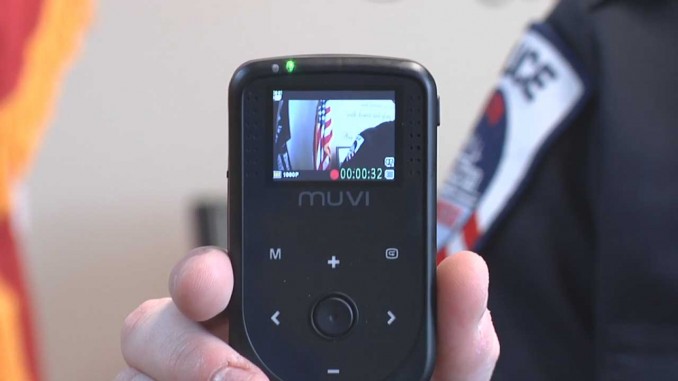
Kingston Police Department (KPD) will begin to implement body cameras as standard equipment for officers in the undercover unit. The cameras purchased under the pilot program will be issued to the department’s five member Special Investigations Unit (SIU).
The SIU focuses on proactive policing involving activities such as undercover drug and gun buys, prostitution stings and hunting down fugitives. They also maintain a wide network of confidential informants.
According to Police Chief Egidio Tinti, the decision to implement the body cameras was based on two factors; the Patrol Division already had dashboard-mounted cameras and it will help the department’s focus on community-oriented policing and improving community relations.
According to Tinti, many Kingston residents have begun to lose trust in the police department, as with many other areas in the country.
“Community-based policing depends largely on the interaction between officers and civilians while they’re out there doing the job,” Tinti said. “This is a tool we can use to develop that trust.”
SIU commander Detective Sgt. Brian Robertson developed the protocol for the body cameras. The goal was to balance between providing visual records of the SIU’s interactions and protecting the identities of informants, undercovers and the unit’s operational secrets.
Officers are to record field interviews, arrests and other interactions with a potential for conflict. Discussions with informants and victim interviews will remain off-camera. Officers also have the discretion to turn off the cameras in situations in which civilians do not wish to be recorded.
Since the department is used to working with audio and recording technology, there was little resistance from the officers. This technology includes body-worn mics and mini cameras. The officers have also used advanced cameras from afar with night-vision and heat-sensing capabilities.
In addition to helping gather evidence to be used during prosecution of criminals, it is also hoped that the cameras will protect officers against false accusations of malfeasance or brutality and, in the event this brutality does take place, provide the necessary evidence to hold officers accountable.
“My unit looks forward to it to protect themselves against false allegations made against my detectives in the past,” Robertson said. “We would gladly like to record that and make sure no false allegations are made against my officers.”
The camera system, the watchguard HD Vista, integrates well with the department’s existing system. The units are to be purchased with $30,000 in cost savings resulting from a new contract with Ulster County SPCA to take over animal control duties previously held by the police department.
Two additional cameras will be used on officers on “directed patrols” under a state program that funds proactive policing efforts. The body cameras will eventually be phased into the Kingston Police Department’s Patrol Division.
Although the SUNY New Paltz University Police Department does not currently own or use body cameras, it is an option they are exploring according to University Police Chief David Dugatkin.
“Right now we’re waiting for a little more direction from our commissioner’s office up in Albany, that oversees all the university police departments, on whether or not we’re going to pursue this,” Dugatkin said.
According to Dugatkin, some of the technical and logistical issues with implementing body cameras with UPD officers include the cost and saving all the recorded footage.
